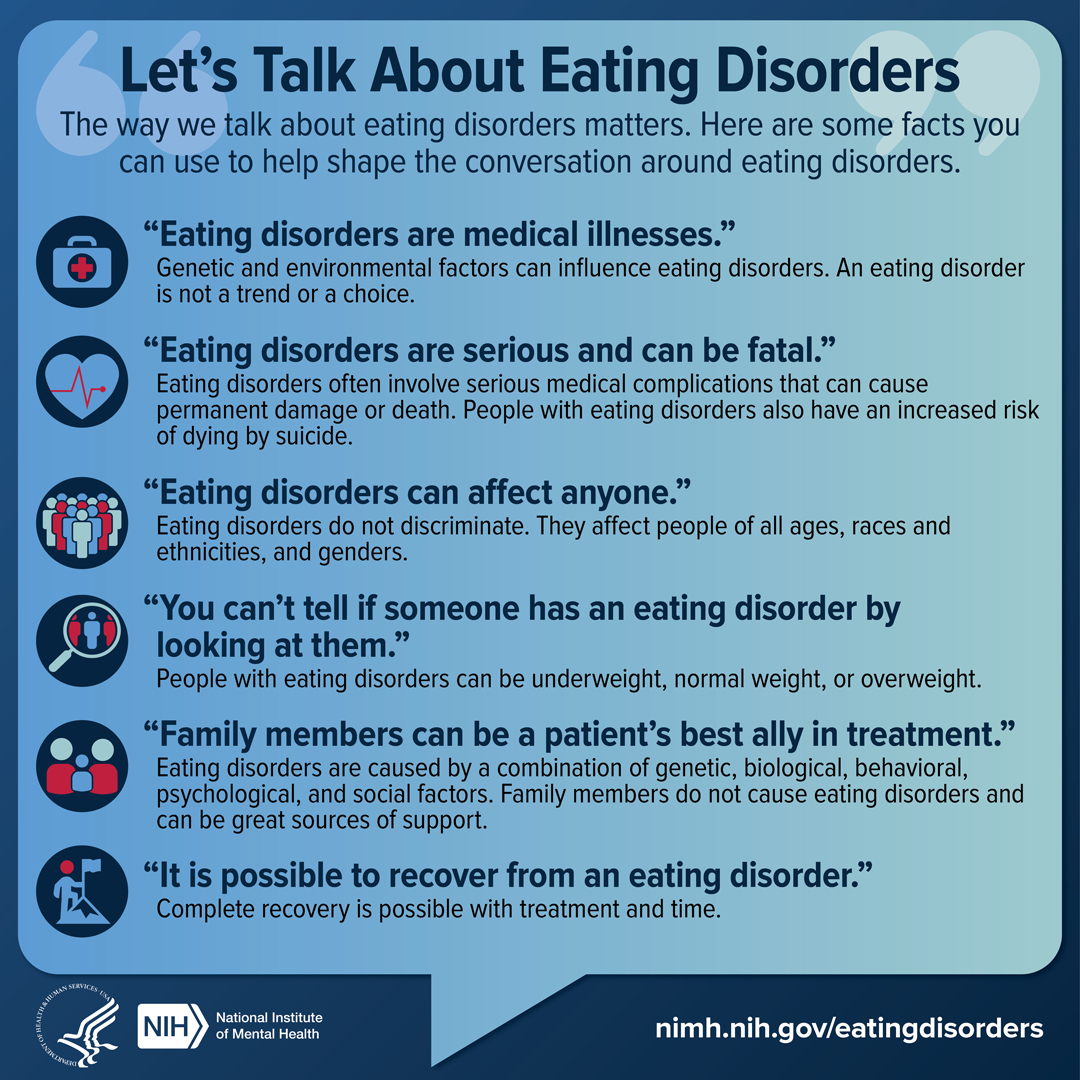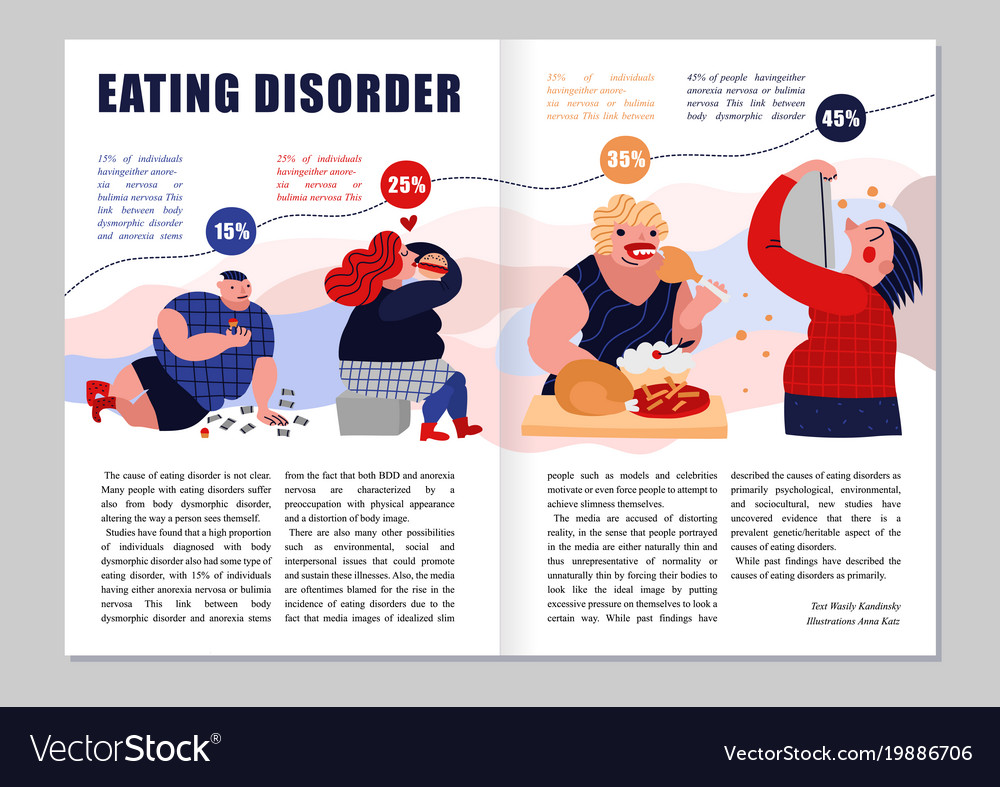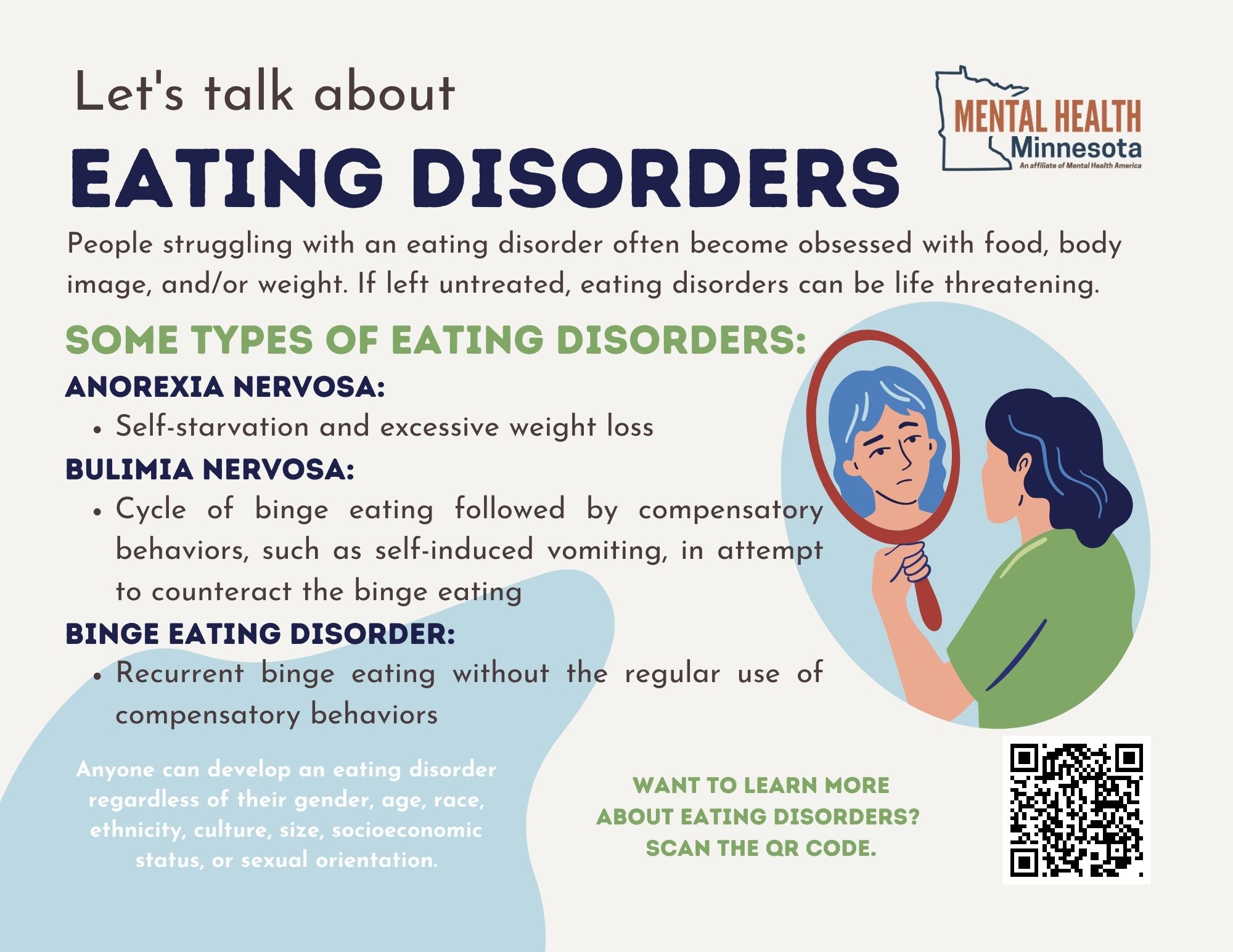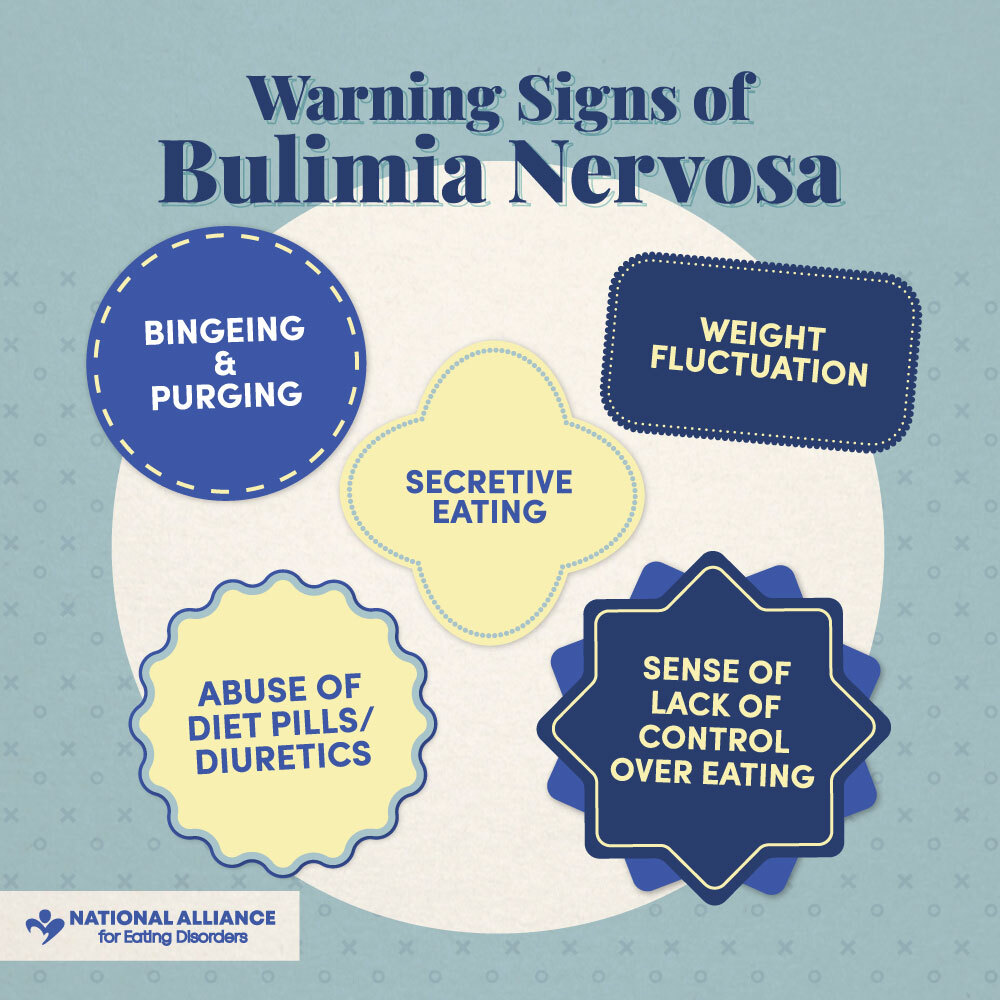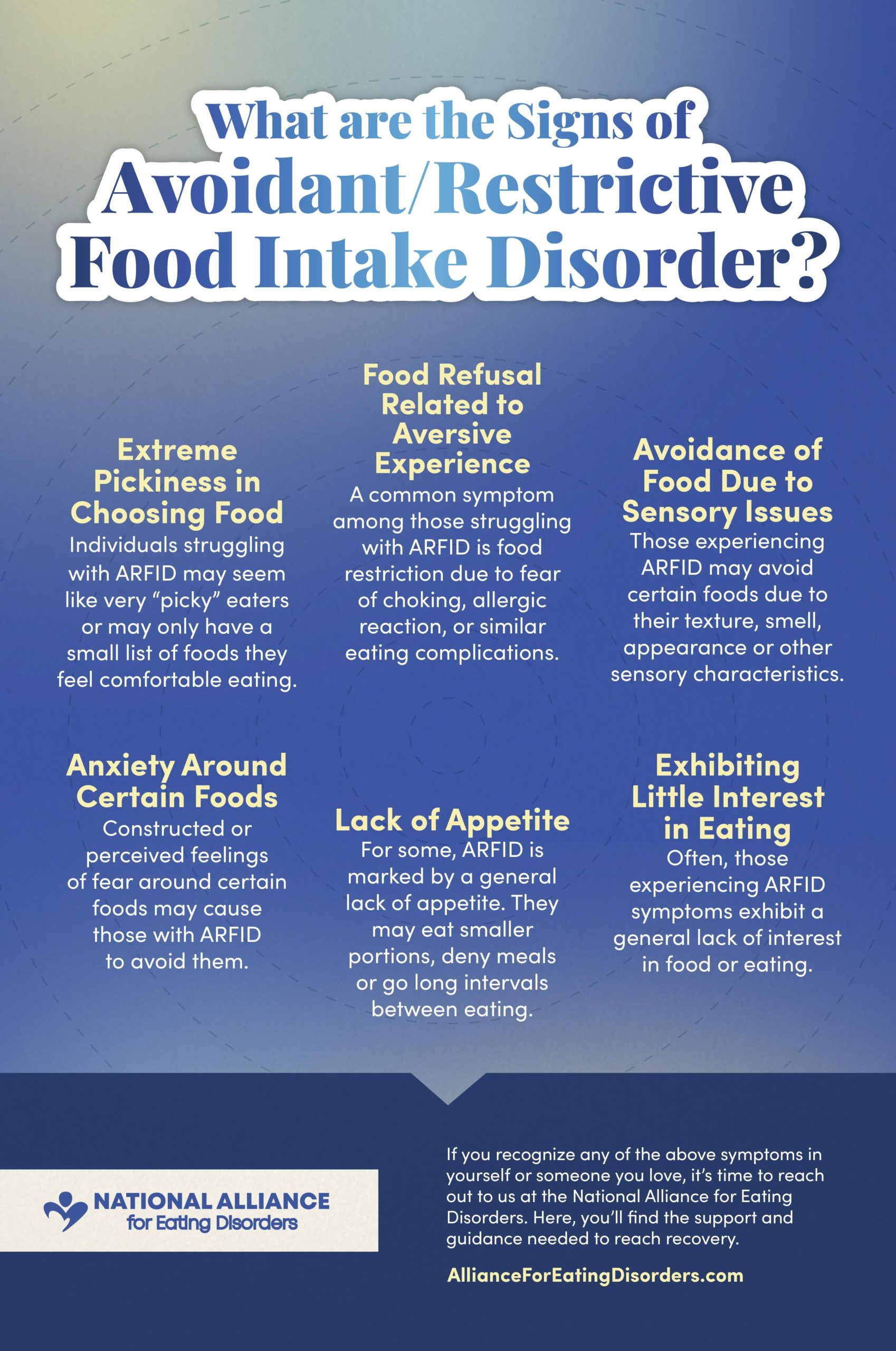Eating Disorders Brochure
Eating Disorders Brochure - “early intervention is associated with much better outcomes. Neda brochures are packed with information about eating disorders, resources for help and support, and guidance on how to help someone struggling. Several practice guidelines exist from professional organizations in the united states to support the assessment and management of eating disorders in children and. Many of the symptoms of eating disorders are secondary effects of. Eating disorders involve serious disturbances in eating behaviors, such as extreme and unhealthy reduction of food intake or severe overeating, as well as feelings of extreme concern about. The alliance is happy to offer free eating disorder information and resources. This brochure provides information about eating disorders including who is at risk, common types of eating disorders and the symptoms of each, treatment options, and resources to find help. Eating disorders are complex illnesses with biological, genetic, psychological, social, and developmental roots. Learn about eating disorders if your loved one is struggling with food and/or body image issues, they may have some of these characteristics. Biological and sociocultural factors play a strong role in the development of an. Eating disorders are complex illnesses with biological, genetic, psychological, social, and developmental roots. Build a healthy eating routine; There are 3 different types of eating disorders. Biological and sociocultural factors play a strong role in the development of an. • eating disorders have the highest mortality rate of any mental illness,. The term “eating disorder” typically. This brochure provides information about eating disorders including who is at risk, common types of eating disorders and the symptoms of each, treatment options, and resources to find help. Eating disorders brochure provides expert insights into the different types of eating disorders, their causes, and potential warning signs. Eating disorders involve serious disturbances in eating behaviors, such as extreme and unhealthy reduction of food intake or severe overeating, as well as feelings of extreme concern about. Eating disorders are behavioral health conditions characterized by severe and persistent disturbances in eating behaviors and associated distressing thoughts and emotions. Many of the symptoms of eating disorders are secondary effects of. This brochure provides information about eating disorders including who is at risk, common types of eating disorders and the symptoms of each, treatment options, and resources to find help. Anorexia, bulimia, and binge eating disorder (bed) are three types of eating disorders. Visit our website for downloadable brochures, posters,. This brochure provides information about eating disorders including who is at risk, common types of eating disorders and symptoms of each, treatment options, and resources to find help for. Many of the symptoms of eating disorders are secondary effects of. There are 3 different types of eating disorders. Remember that disordered eating can progress into a diagnosable eating disorder, which. Learn about eating disorders if your loved one is struggling with food and/or body image issues, they may have some of these characteristics. This brochure provides information about eating disorders including who is at risk, common types of eating disorders and symptoms of each, treatment options, and resources to find help for. Visit our website for downloadable brochures, posters, and. Eating disorders are not fads, phases, or lifestyle choices—they are real, complex medical and psychiatric illnesses that can have serious consequences for health, relationships, and overall. Eating disorders involve serious disturbances in eating behaviors, such as extreme and unhealthy reduction of food intake or severe overeating, as well as feelings of extreme concern about. The term “eating disorder” typically. Visit. Cut down on added sugars The alliance is happy to offer free eating disorder information and resources. Eating disorders are not fads, phases, or lifestyle choices—they are real, complex medical and psychiatric illnesses that can have serious consequences for health, relationships, and overall. “early intervention is associated with much better outcomes. This brochure provides information about eating disorders including who. Eating disorders involve serious disturbances in eating behaviors, such as extreme and unhealthy reduction of food intake or severe overeating, as well as feelings of extreme concern about. Cut down on added sugars • over 30 million americans experience a clinically significant eating disorder during their lifetime. Obsessions with food, body weight, and shape may be signs of an eating.. • over 30 million americans experience a clinically significant eating disorder during their lifetime. Anorexia, bulimia, and binge eating disorder (bed) are three types of eating disorders. The three most common eating disorders are anorexia nervosa (an), bulimia nervosa (bn), and binge eating disorder (bed). Take the first stepmake an informed choicetrusted counselorsyour best resource Eating disorders involve serious disturbances. Many of the symptoms of eating disorders are secondary effects of. Take the first stepmake an informed choicetrusted counselorsyour best resource Eating disorders are serious medical illnesses marked by severe disturbances to a person’s eating behaviors. Learn about eating disorders if your loved one is struggling with food and/or body image issues, they may have some of these characteristics. Cut. • eating disorders have the highest mortality rate of any mental illness,. Eating disorders are serious medical illnesses marked by severe disturbances to a person’s eating behaviors. Eating disorders brochure provides expert insights into the different types of eating disorders, their causes, and potential warning signs. Many of the symptoms of eating disorders are secondary effects of. There are 3. Visit our website for downloadable brochures, posters, and lab coat cards. This brochure provides information about eating disorders including who is at risk, common types of eating disorders and the symptoms of each, treatment options, and resources to find help. Eating disorders are complex illnesses with biological, genetic, psychological, social, and developmental roots. Learn about eating disorders if your loved. • over 30 million americans experience a clinically significant eating disorder during their lifetime. This brochure provides information about eating disorders including who is at risk, common types of eating disorders and symptoms of each, treatment options, and resources to find help for. • eating disorders have the highest mortality rate of any mental illness,. The alliance is happy to offer free eating disorder information and resources. Remember that disordered eating can progress into a diagnosable eating disorder, which can be tougher to treat. Learn about eating disorders if your loved one is struggling with food and/or body image issues, they may have some of these characteristics. “early intervention is associated with much better outcomes. Eating disorders brochure provides expert insights into the different types of eating disorders, their causes, and potential warning signs. There are 3 different types of eating disorders. The three most common eating disorders are anorexia nervosa (an), bulimia nervosa (bn), and binge eating disorder (bed). Intense fear of gaining weight or becoming fat,. Build a healthy eating routine; Eating disorders are not fads, phases, or lifestyle choices—they are real, complex medical and psychiatric illnesses that can have serious consequences for health, relationships, and overall. Anorexia, bulimia, and binge eating disorder (bed) are three types of eating disorders. Eating disorders are behavioral health conditions characterized by severe and persistent disturbances in eating behaviors and associated distressing thoughts and emotions. Neda brochures are packed with information about eating disorders, resources for help and support, and guidance on how to help someone struggling.Binge Eating Disorder Diagnosis Screenings and Testing
Let’s Talk About Eating Disorders National Institute of Mental Health
Prevention Tactics for Eating Disorders SCCS
Eating disorder magazine layout Royalty Free Vector Image
Print Ads by Rebecca Leopard at
Eating disorders treatment blue brochure template Vector Image
Learning about Eating Disorders Mental Health Minnesota
Eating Disorder Resource Library Alliance For Eating Disorders Awareness
Eating disorders flat infographics Royalty Free Vector Image
Eating Disorder Resource Library Alliance For Eating Disorders Awareness
Eating Disorders Are Serious Medical Illnesses Marked By Severe Disturbances To A Person’s Eating Behaviors.
Many Of The Symptoms Of Eating Disorders Are Secondary Effects Of.
The Term “Eating Disorder” Typically.
Refusal To Maintain Body Weight At Or Above A Minimally Normal Weight For Age And Height.
Related Post:
:max_bytes(150000):strip_icc()/binge-eating-disorder-diagnosis-5181755_FINAL-62daf89832dd4f26b1a2689b889a3eca.jpg)
